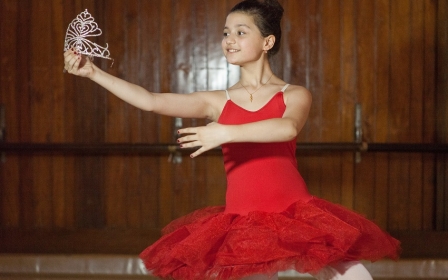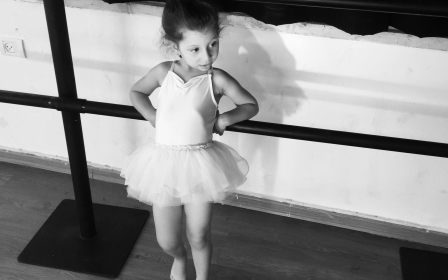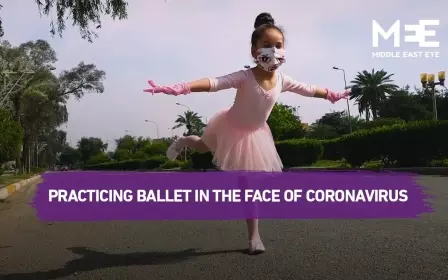In pictures: Inside a British Muslim ballet school
In London, young children dressed in brightly coloured pink tutu skirts tiptoe in a studio, the sounds of poetry echoing in the background. The class is part of Grace and Poise Academy’s ballet school, which since it was established in 2019, has now spread to other parts of the UK, including Birmingham, and Leicester.
Grace and Poise was founded by Maisie Alexandra Byers, who herself was a lover of ballet from a young age. She trained professionally at the Royal Academy of Dance and went on to get a degree in Ballet education. Maise became a Muslim in 2018, which she says was a major turning point in her life.
"I believe it's the truth and I was searching for the truth," she told Middle East Eye.
After working across schools in London, teaching and training eager ballerinas from a young age all the way up until professional levels, Byers was determined to bring ballet to the Muslim community. "I wanted to be able to help children develop holistically and to be able to celebrate a beautiful art form that has so many benefits as a means to enhancing one's faith," says Byers. (All photos supplied by Grace and Poise)
The name "Grace and Poise" reflects its founders’ belief that Muslims should should always remain graceful in their character, and poised with regards to their Islamic beliefs and identity. Byers also wanted the name to refer to the poise and elegance of ballet.
The classes are designed to make ballet more accessible for Muslims of all kinds, which is why poetry is used as a background sound rather than music, given the prohibition on music in some interpretations of Islam.
“For some, using music can be a limitation to accessing ballet, so we decided to work with poetry as this would not only make the classes more accessible, but it would also celebrate the significance of poetry in Islamic heritage,” Byers says.
Only females are allowed in during the girls’ classes. The uniforms also allow those who choose to dress modestly to take part, with those aged nine and above having the option to wear longer ballet skirts. Students at the school also have the choice to wear cardigans on top of the leotards, and many of those attending will wear a long dress or abaya with a hijab on the way to class, then remove it once in, allowing them to dance more comfortably. The school offers ballet to different age groups and abilities, starting from baby ballet that starts for students aged two to four years old.
Each class starts with barre work, which helps students warm up their muscles and prepare their bodies for more complex movements. Then, the class moves on to "centre work", which involves moves that include the use of arms, spins, and balances. At this point, students are ready for "Allegro", which is jump-based work.
Students also have the opportunity to improvise during classes, allowing them creative freedom.
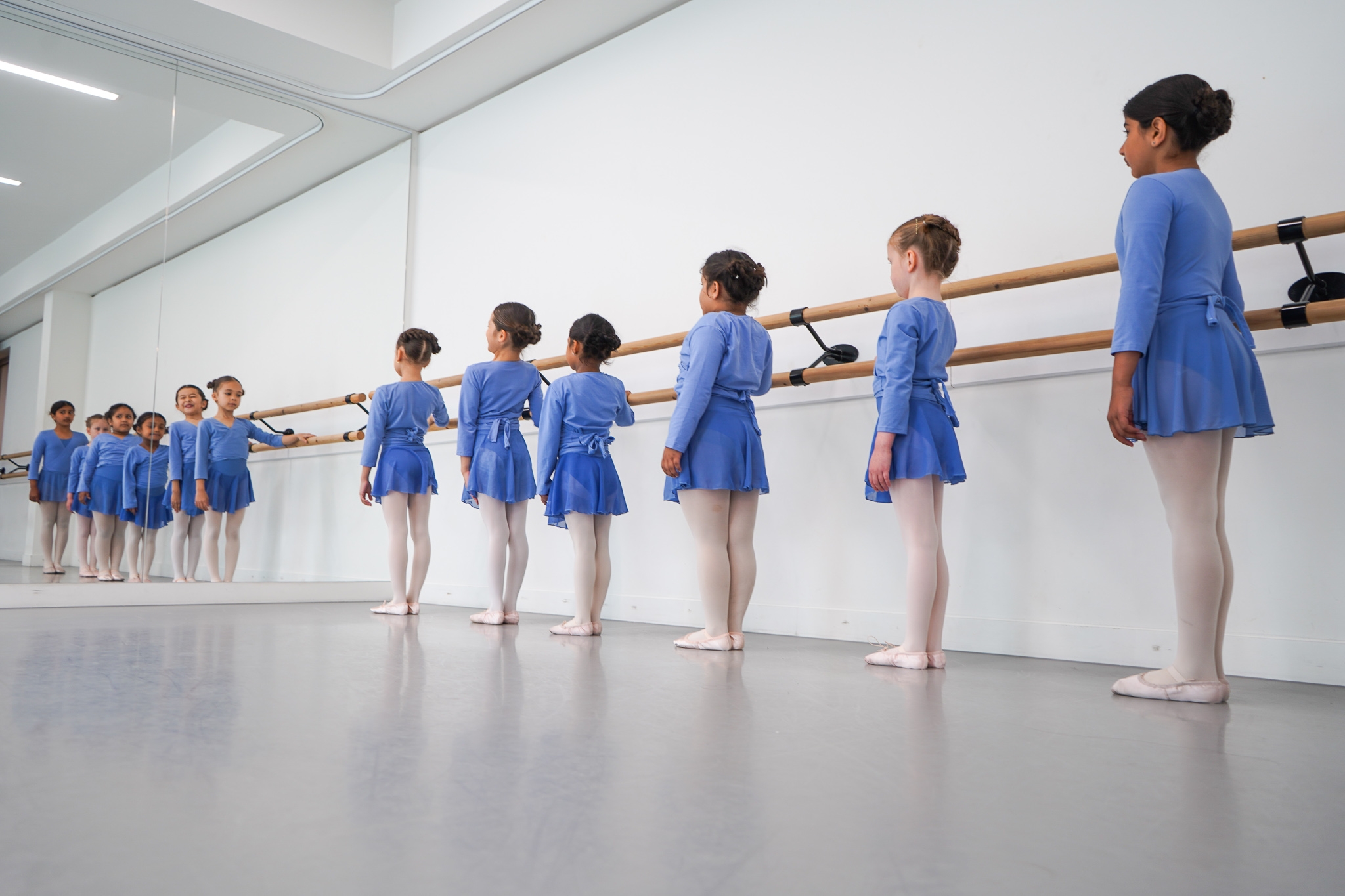
Poetry is one of the main focal points of the classes and something that both the children and teachers enjoy. “The use of poetry allows us to enrich a child’s engagement with storytelling and expression, as well as develop cognitively and emotionally,” Byers says. “We have found that working with poetry has allowed us to explore ballet in a new and innovative way and we are proud to be contributing to Islamic art in this way,” she adds.
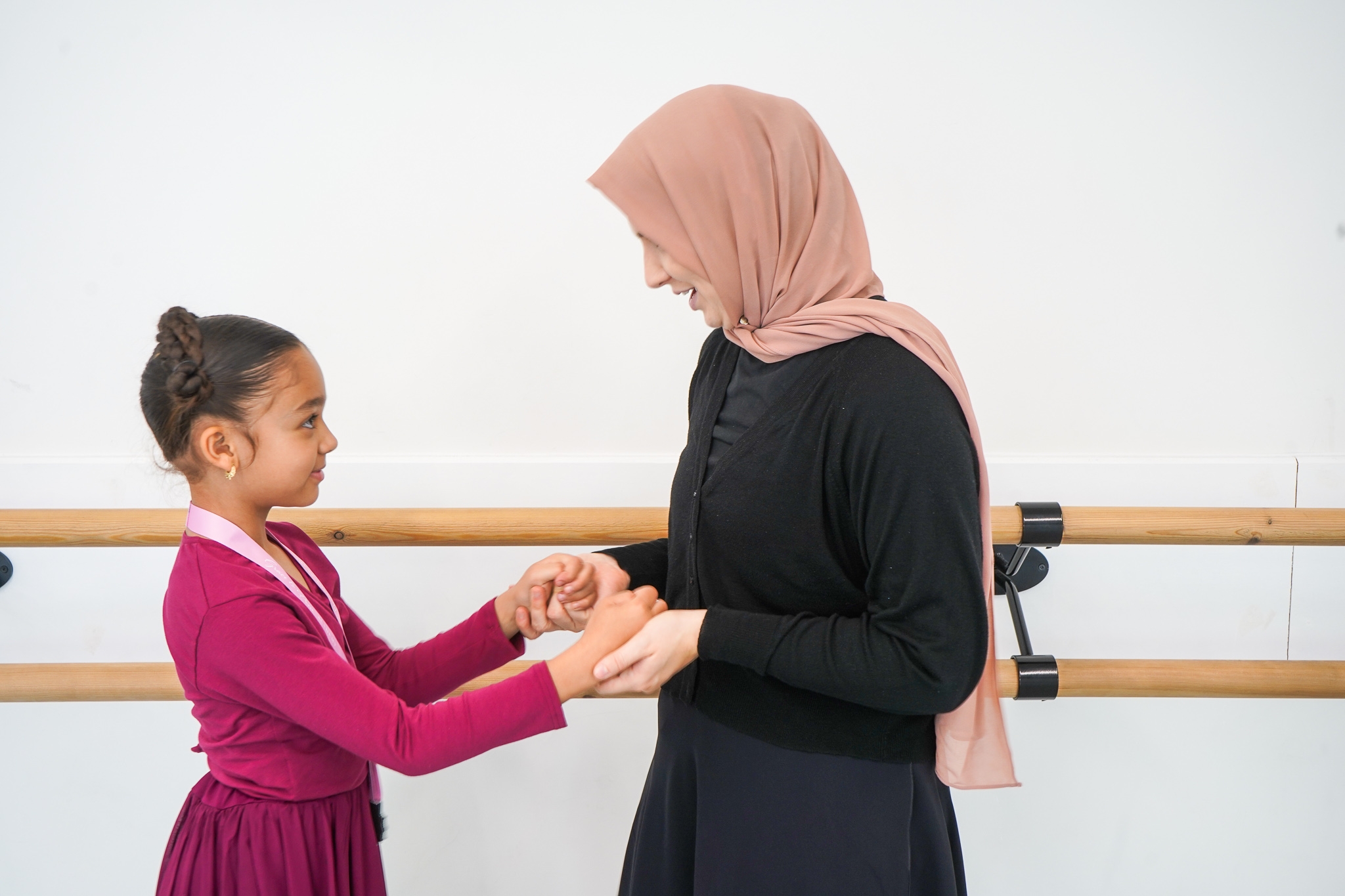
The poetry is designed to inspire the movements of the students. The tempo as well as the rise and fall in the poems are used to inform the movements and rhythms. Many of the poems used centre around positive messaging, and take inspiration from nature. “The poems allow students to think reflectively and communicate the content of the poems through their bodies… this means that ballet becomes the physical manifestation of the spoken word,” Byers explains.
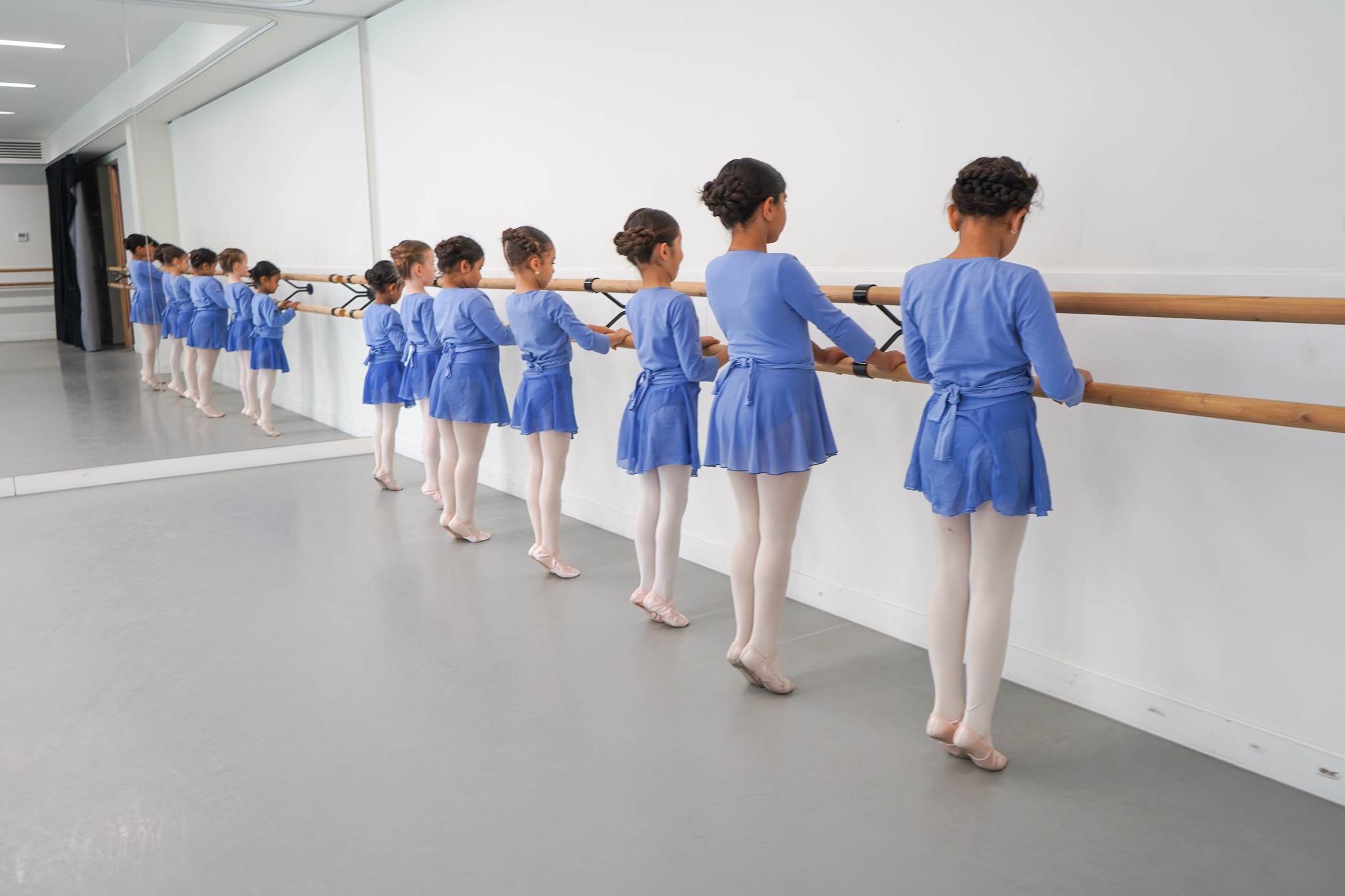
The classes also encourage students to maintain positive practices and follow the teachings of Islam. Each class begins with everyone collectively saying “Bismillah”, Arabic for “in the name of God". Muslims are encouraged to begin any action by saying this, following the belief that everything should be done with God in mind and with the hope that the action will be blessed.
Throughout the class, students are also encouraged to develop good morals and to connect to their faith on a deeper level. In addition to the classes, Grace and Poise also offer workshops and shows that cover stories of the prophets.
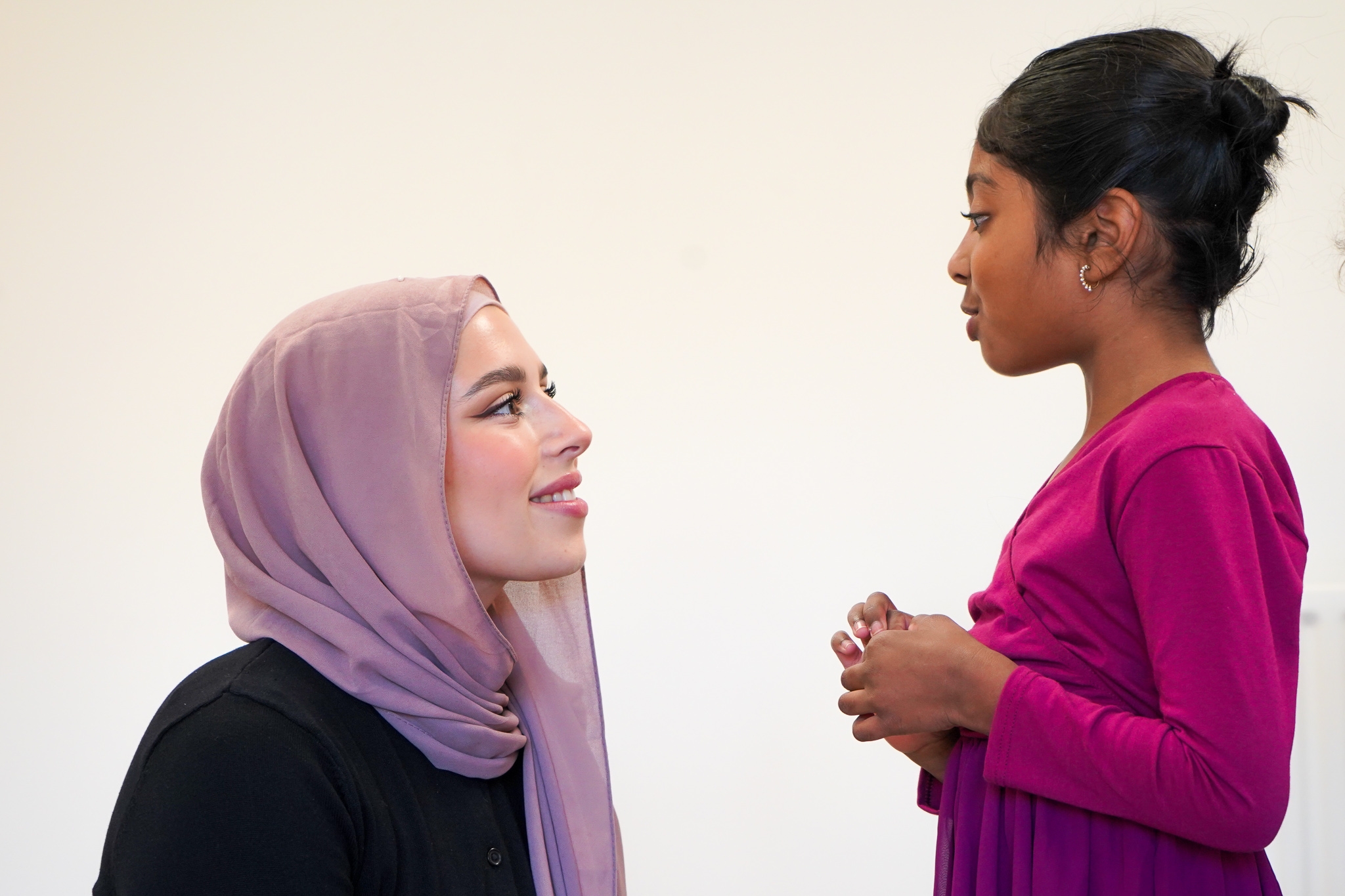
Despite the success of the ballet school, there have still been some challenges along the way. "Opening a business that's new to the community just before the coronavirus pandemic followed by economic difficulties has proved to be challenging," says Byers.
"We are trying to educate the community about ballet and its benefits but at a time when accessing any additional educational enrichment would be challenging financially for many families," she adds.
However, despite this, the ballet school now has six schools in London, with the team planning to expand further. “Our hope is that we can expand on an international scale.”
Middle East Eye delivers independent and unrivalled coverage and analysis of the Middle East, North Africa and beyond. To learn more about republishing this content and the associated fees, please fill out this form. More about MEE can be found here.


